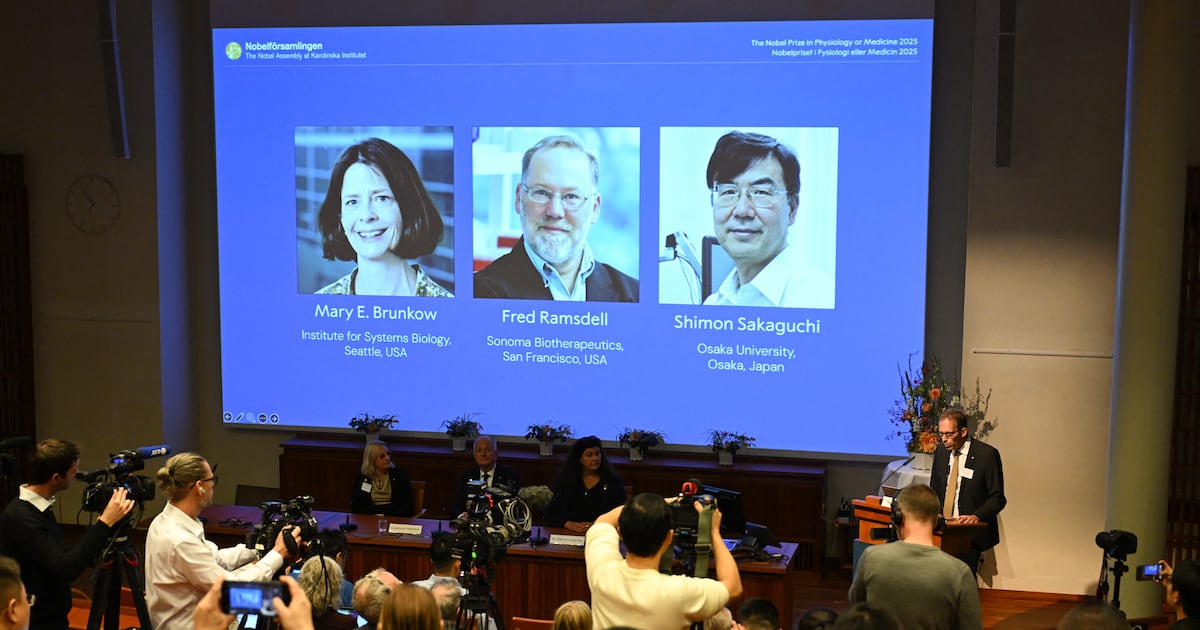World
Nobel Committee Struggles to Reach Medicine Laureate on Hiking Trip

The Nobel Prize committee has faced challenges in contacting one of the winners of this year’s prize in medicine, Fred Ramsdell, who is reportedly on a “digital detox” hiking trip in the American wilderness. Ramsdell, along with Mary Brunkow from Seattle and Shimon Sakaguchi from Osaka University, received the award for their groundbreaking discoveries related to the human immune system, which were announced on October 2, 2023.
Ramsdell’s current hiking expedition has left him out of reach of phone and email communications. His friend and laboratory co-founder, Jeffrey Bluestone, stated, “I’ve been trying to get hold of him myself. I think he may be backpacking in the back-country in Idaho.” The Nobel committee encountered similar difficulties in reaching Brunkow, who is also based on the U.S. West Coast, roughly nine hours behind Stockholm.
Acknowledging Groundbreaking Discoveries
The trio was recognized for their significant contributions to understanding how the immune system regulates itself, which has opened pathways for potential therapies for cancer and autoimmune diseases. The Nobel Assembly at Karolinska Institutet announced that the three laureates will share a prize of 11 million Swedish krona (approximately €1 million).
Over several decades, the scientists identified essential elements of the immune system, referred to by the Nobel Committee as “the immune system’s security guards.” Their work has laid the groundwork for a new field of research aimed at developing therapies that can effectively treat autoimmune diseases and enhance cancer treatment protocols.
Shimon Sakaguchi, aged 74, initiated this line of research with his discovery of a new class of T cells, which are vital for the body’s defense mechanisms. Both Brunkow and Ramsdell, aged 64, expanded upon Sakaguchi’s findings while investigating the origins of autoimmune diseases. The researchers, working at Celltech Chiroscience in Washington State, identified a faulty gene in mice suffering from severe autoimmune diseases, which was linked to a rare inherited condition known as IPEX syndrome.
Two years later, Sakaguchi confirmed that this faulty gene plays a critical role in the development of regulatory T cells. These findings have catalyzed efforts to create new medical treatments aimed at autoimmune disorders.
Future Implications of the Research
The Nobel Committee expressed optimism about the implications of the researchers’ work, stating, “The hope is to be able to treat or cure autoimmune diseases, provide more effective cancer treatments, and prevent serious complications after stem cell transplants.” Current research is focused on dismantling the regulatory T cells that protect cancer tumors from the immune response while promoting the formation of additional regulatory T cells to combat autoimmune diseases.
The annual Nobel Prizes, established in the will of Alfred Nobel, include categories for achievements in physics, chemistry, medicine, literature, and peace. A prize in economic sciences was later added by Sweden’s central bank in 1968. Last year, the medicine Nobel was awarded to two American scientists for their discoveries surrounding gene activity regulation through tiny RNA molecules.
Notable past winners of the medicine prize include those recognized for their groundbreaking work on insulin in 1923, penicillin in 1945, and the molecular structure of DNA in 1962.
-

 Top Stories3 months ago
Top Stories3 months agoTributes Surge for 9-Year-Old Leon Briody After Cancer Battle
-

 Entertainment4 months ago
Entertainment4 months agoAimee Osbourne Joins Family for Emotional Tribute to Ozzy
-

 Politics4 months ago
Politics4 months agoDanny Healy-Rae Considers Complaint After Altercation with Garda
-

 Top Stories4 months ago
Top Stories4 months agoIreland Enjoys Summer Heat as Hurricane Erin Approaches Atlantic
-

 World5 months ago
World5 months agoHawaii Commemorates 80 Years Since Hiroshima Bombing with Ceremony
-

 Top Stories3 months ago
Top Stories3 months agoNewcastle West Woman Patricia Foley Found Safe After Urgent Search
-

 Top Stories5 months ago
Top Stories5 months agoFianna Fáil TDs Urgently Consider Maire Geoghegan-Quinn for Presidency
-

 World5 months ago
World5 months agoCouple Convicted of Murdering Two-Year-Old Grandson in Wales
-

 World5 months ago
World5 months agoGaza Aid Distribution Tragedy: 20 Killed Amid Ongoing Violence
-

 World5 months ago
World5 months agoAristocrat Constance Marten and Partner Convicted of Infant Murder
-

 Top Stories4 months ago
Top Stories4 months agoClimbing Errigal: A Must-Do Summer Adventure in Donegal
-

 Top Stories4 months ago
Top Stories4 months agoHike Donegal’s Errigal Mountain NOW for Unforgettable Summer Views









